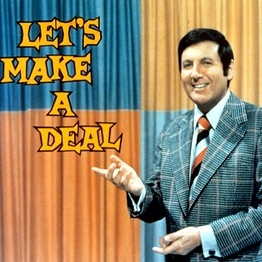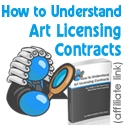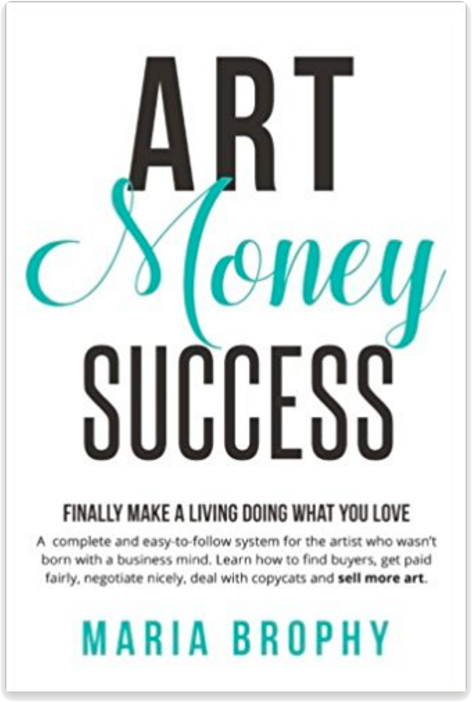 During a negotiation, it would be wise not to take anything personally. If you leave personalities out of it, you will be able to see opportunities more objectively. Brian Koslow
During a negotiation, it would be wise not to take anything personally. If you leave personalities out of it, you will be able to see opportunities more objectively. Brian Koslow
From deal making to buying Gucci purses in the streets of New York, negotiating is a part of life. And yet, many of us are so uncomfortable with it that we cave in and agree to anything!
Some cultures are trained to be ruthless negotiators, and certain areas of America contain more skilled negotiators than others.
I have never been very comfortable with negotiating. Shopping trips to Mexico would have me paying more than I should just because I don’t enjoy the game of talking someone down on a price. After all, I don’t mind paying a little more for a box of Chiclets if it means a poor street kid will eat better that night.
But, when it comes to survival in business, I’ve had to learn to negotiate. I’ve read books such as Getting to Yes and I’ve taken negotiating workshops through Karrass, Inc. And though I’m not the most aggressive negotiator, I have learned to keep up with the best of them.
Just as there are guidelines to cooking a turkey, there are guidelines to negotiating. These basic guidelines will help prevent you from making a big mistake during your next business deal:
NEGOTIATING MUSTS:
- Research Before the Negotiation: Do your homework. In a business deal, you want to find out as much as you can about the company and the people you are dealing with. This will aid in your negotiation.
- Know your Numbers Before the Negotiation: Go into a negotiation knowing what you want. If you don’t know what you want, you’ll never get it! Write down on a piece of paper three things:
- Your desire outcome;
- Your drop dead lowest outcome that you will agree to if you have to; and
- Your Deal Breaker, which is the outcome that will cause you to walk away from the deal.
- Ask for What you Want: Often, a client will pay or give more than you thought. Don’t be afraid to ask for what you want.
- Talk less, Listen More: Understand where the other party is coming from. Ask a lot of questions so that you know what their concerns are and their needs are. Sometimes it’s not what you think.
- Concessions should be Tit for Tat: Make sure that if the other party asks you to make a concession (give something extra or take less money), that you are given something extra in return. In business deals, you can get very creative with this. Ask for free advertising or extra products or plane tickets, etc. Avoid granting concessions without anything given to you in return.
- Change your Offer if Need Be: Often we are wary of changing our offer in the middle of the game. But sometimes it’s necessary, especially when the deal has changed and new information is gained during discussions. Don’t be afraid to withdraw something you offered earlier, if it makes sense to do so now.
- Brainstorm to make the deal fair to all: The best deals are ones that have never been done before, so says Seth Godin. Get creative; if you reach a point in negotiations where you can’t agree, think up a new way to get you what you want and to get them what they want.
- Follow up in Writing: Always follow up a discussion with the points agreed to in writing. Email this to the client and make sure that you both have clarity on what was discussed.
NEGOTIATING NO-NO’s:
- Never Negotiate Against Yourself: If you gave an offer or a price and the other person didn’t accept it, DO NOT offer them a lower number. This is called negotiating against yourself. Instead, ask them to make you a counter-offer.
- Don’t Fall for the “Hurry up and Sign!” If your new business partner is giving you the rush-rush to sign a contract before you are ready or have time to think about what you are agreeing to, Don’t Do it! Ask them to slow down and to allow you the time you need.
- Don’t Negotiate with Someone Who Doesn’t Make the Decisions: If the person you’re dealing with says “I have to go ask my boss now if he agrees” insist that you deal directly with the person making the negotiating decisions. Don’t fall for this game. It’s a negotiating tactic.
- Don’t Agree to Something That Feels Wrong: Look out for Red Flags. If the deal feels bad, worries you or turns your stomach, don’t agree to it. Period.
- Don’t Regret your Decision Later: Learn to trust your decision making. Once you make a decision on a negotiation, look forward, move ahead, and never look back with regret. Learn from mistakes, but don’t feel regret.
- Don’t fall for the “But it’s great Promotion for you” Line: When negotiating a business deal, the price you are paid should have absolutely nothing to do with how well the product will sell or how many famous people are involved or anything else like that. When a client uses the “But it will be good promotion for you” line , ignore it. Don’t give it any merit or consideration. It’s irrelevant 99% of time.
- Don’t be afraid to walk away if it goes badly: A bad deal is a bad deal. Don’t agree to one.
I hope these tips are helpful. If you have any to add in the comments, please do. You may want to check out an article on this topic that I really liked titled Negotiation Tips for the Beginner by Man Vs. Debt.
Maria xxoo
 PS: You can find more negotiating tips for art licensing deals in my new book, co-written with artist Tara Reed, called How to Understand Art Licensing Contracts. Click the link to find out more about it!
PS: You can find more negotiating tips for art licensing deals in my new book, co-written with artist Tara Reed, called How to Understand Art Licensing Contracts. Click the link to find out more about it!










19 Responses
Maria, this is great advice! Negotiating is a skill and thanks for the tips, I can certainly use them. 🙂
Indigene, thank you so much for the comment! And yes, we all can use reminders!
Maria,
Thanks for such an informative article on negotiating! As an artist, negotiating is not my strong point but I found that it is an important skill if you represent yourself in licensing or ask an agent for representation. So many artists do not realize that she/he can ask for what they want and that the contract offered is NOT written in stone.
Joan
Joan, thanks for stopping by my blog! I agree, so many artists think that the contract given to them is written in stone, but it’s not.
Most of the clients I work with expect changes to contracts – because the savvy artists will request them.
Your blog is always an inspiration. Thanks so much for all your insight!
Thanks, Younes, for the comment! Glad to be of help!
Basic but absolutely vital tips – I especially like the part about knowing your preferred price, your lowest price and the moment when you just walk away. Having a clear goal set is half of the negotiation, otherwise you’re just a leaf in the wind.
Thanks, Mars, for the comment. You nailed it – having a clear goal avoids being a “leaf in the wind” which never ends up good for anyone!
Really great advice! Thank you for posting this article! I especially liked not negotiating against yourself!
Maybe you could write next articles referring to this article. I want to read even more things about it! Excellent post. I was checking continuously this blog and I’m impressed! Very useful info particularly the last part 🙂
This is because teenagers with no experience in driving at all are basically given
higher premiums. There are comparison websites where you could compare and check the different rates of different insurance policies.
Groups are coming together, and through one company they will offer quotes from a
number of different insurance companies.
SpookySwap is a next-generation decentralized exchange (DEX) built on the lightning-fast Fantom Opera blockchain. Designed for efficiency, security, and low-cost transactions, SpookySwap empowers users to trade, stake, and earn without relying on centralized intermediaries. Its seamless user experience and robust features make it a key player in the expanding world of decentralized finance (DeFi).
https://spookyswap.app/
https://x.com/WOOFiFinance/status/1890122088507433145, WOOFi Finance Leading DEX 2025
A reliable DeFi exchange for all your crypto needs: CowSwap https://cowswap.one/.
Discover the power of MinSwap, the leading decentralized exchange platform offering seamless trading and low fees. Maximize your assets and join the next generation of decentralized finance
Discover CowSwap, the trusted decentralized exchange platform for seamless crypto trades in 2025. With low fees, high security, and fast transactions, CowSwap is a go-to solution for DeFi users worldwide
Discover the future of decentralized finance with Woofi Finance, a cutting-edge platform for seamless crypto staking and yield farming. Maximize your returns with low fees and high rewards. Join the revolution in DeFi today!